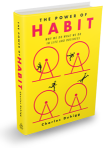
Today we have a fabulous guest post by Rochelle Melander.
 Rochelle is an author, speaker, and certified professional coach. She is the author of ten books, including the National Novel Writing Month guide—Write-A-Thon: Write Your Book in 26 Days (and Live to Tell About It). Rochelle teaches professionals how to write good books fast, use writing to transform their lives, navigate the publishing world, and get published! For more tips and a complementary download of the first two chapters of Write-A-Thon, visit her online at www.writenowcoach.com
Rochelle is an author, speaker, and certified professional coach. She is the author of ten books, including the National Novel Writing Month guide—Write-A-Thon: Write Your Book in 26 Days (and Live to Tell About It). Rochelle teaches professionals how to write good books fast, use writing to transform their lives, navigate the publishing world, and get published! For more tips and a complementary download of the first two chapters of Write-A-Thon, visit her online at www.writenowcoach.com
Rock The Write-A-Thon: Five Tools to Help You Write More
Remember the exhilaration that came from the all-nighters we put in during college? There was something magical about holing up with classmates, eating pizza, and writing straight through the night. Once I grew up and had kids, I had enough all-nighters with the wee ones to want to stay up all night and write. I learned how to write faster because I had to: my editors gave me writing assignments that included big word counts with impossibly quick deadlines.
When we take on a write-a-thon, we get the experience of working on a big project with a tight deadline without all the pressure. Next time the editors come calling, we’ll be ready to produce great copy in a short amount of time. After completing many write-a-thons, I’ve discovered methods to help me write more. Here are five tools to rock your write-a-thon:
1. Once upon a time. According to scientific research, our bodies peak for physical, social, and intellectual tasks at specific times of day. Researchers offer broad suggestions about when we do best at various activities. For example, many of us do well at intellectual tasks during the late morning while we excel at creativity in the evening when we are tired and more open to new ideas. (The Wall Street Journal: “The Peak Time for Everything”) But even scientists admit that peak working times are different for each of us. Review your most productive writing sessions—what time was it? Once you know when you write best, schedule your writing during those times of the day.
 2. Add Ritual and Stir. In the book The Power of Habit, author Charles Duhigg suggests that our habits have three distinct steps: cue, practice, reward. This habit loop might be as simple as brushing our teeth:
2. Add Ritual and Stir. In the book The Power of Habit, author Charles Duhigg suggests that our habits have three distinct steps: cue, practice, reward. This habit loop might be as simple as brushing our teeth:
Cue: It’s bedtime.
Practice: Brush Teeth
Reward: Ohhh! My mouth feels fresh and clean.
Writers can increase their writing productivity by making writing a habit. I’ve done this by creating a morning ritual. Before I check Facebook or email, I take a look at my writing task of the day—left on an open document on my computer—and write. Once I’ve put in my writing time, I reward myself with a trip to Facebook or a walk around the block. Find a cue that will remind you to write. Create a ritual around it. Enjoy the reward of getting more work done!
 3. Use Your Secret Super Powers. Last weekend at a community gathering, I had a conversation with a three-year-old boy wearing a cape. He told me about his secret super powers (I’m not allowed to share them with you). Author and Jungian psychoanalyst Dr. Clarissa Pinkola Estes says that we can find our giftedness inside our eccentricities. She encourages people to list everything they’ve been ridiculed or criticized for—and then look for the gift hiding under it. When I did the exercise, I remembered something a colleague said to me in grad school, “It’s not that you lack intelligence. It’s just that you’re not serious enough.” It wasn’t until recently that I gave up trying to be so freaking serious and got connected to my sense of humor. When I’m stuck, I can always write forward by using my secret super power: my sense of humor. Find your eccentricity, and you will discover that you have at least one secret super power, too.
3. Use Your Secret Super Powers. Last weekend at a community gathering, I had a conversation with a three-year-old boy wearing a cape. He told me about his secret super powers (I’m not allowed to share them with you). Author and Jungian psychoanalyst Dr. Clarissa Pinkola Estes says that we can find our giftedness inside our eccentricities. She encourages people to list everything they’ve been ridiculed or criticized for—and then look for the gift hiding under it. When I did the exercise, I remembered something a colleague said to me in grad school, “It’s not that you lack intelligence. It’s just that you’re not serious enough.” It wasn’t until recently that I gave up trying to be so freaking serious and got connected to my sense of humor. When I’m stuck, I can always write forward by using my secret super power: my sense of humor. Find your eccentricity, and you will discover that you have at least one secret super power, too.
 4. Know your poison; create an antidote! Scientists who study venomous animals know that understanding how an animal’s venom affects its victim will provide the key to creating the antidote. Writers are regularly attacked and often blocked by venomous thoughts or practices. But once we know our poison, we can develop effective antidotes. One of my clients has the tendency to get lost on creative side trips. She’ll be making good progress on her novel when a thought strikes her: “Oh! Oh! Maybe I could write better if I rearranged my office!” And she’s off: sketching new layouts, searching online for organizing tools, even moving the furniture. She’s since learned the antidote to these amazing ideas: jot them down and address them AFTER she’s put in her writing time. Consider the last five times you’ve been derailed by negative thoughts or distracting practices. Create an antidote to help you keep writing.
4. Know your poison; create an antidote! Scientists who study venomous animals know that understanding how an animal’s venom affects its victim will provide the key to creating the antidote. Writers are regularly attacked and often blocked by venomous thoughts or practices. But once we know our poison, we can develop effective antidotes. One of my clients has the tendency to get lost on creative side trips. She’ll be making good progress on her novel when a thought strikes her: “Oh! Oh! Maybe I could write better if I rearranged my office!” And she’s off: sketching new layouts, searching online for organizing tools, even moving the furniture. She’s since learned the antidote to these amazing ideas: jot them down and address them AFTER she’s put in her writing time. Consider the last five times you’ve been derailed by negative thoughts or distracting practices. Create an antidote to help you keep writing.
 5. Stop whining. When I was in labor with my first child, trying to push out the big-headed boy, I screamed in pain. My nurse chastised me. “Save the energy for pushing. You’ll be more effective.” She was right (bossy and annoying, but on target). Many of us spend our precious creative energy by talking out our stories with colleagues, posting about our work online, or whining about the challenges of writing. Save it! Put that creative energy into your story first and then you can talk about it!
5. Stop whining. When I was in labor with my first child, trying to push out the big-headed boy, I screamed in pain. My nurse chastised me. “Save the energy for pushing. You’ll be more effective.” She was right (bossy and annoying, but on target). Many of us spend our precious creative energy by talking out our stories with colleagues, posting about our work online, or whining about the challenges of writing. Save it! Put that creative energy into your story first and then you can talk about it!
Your turn: What practices have helped you to write more?

To win a copy of Write-A-Thon, follow Rochelle’s blog, The Write Now Coach! blog, and report back in Chronicles’s comments that you’ve done so. Entries for this giveaway will be accepted through midnight on Tuesday, February 19.


I just subscribed using Google RSS feed, it looks like a very interesting blog. I’ll be checking it out. Thanks Ashley!!
Excellent – and could well just be the kick I need, thanks Ashley – have signed up
Curious to hear what helps you to write more! Thanks for stopping by!
I subscribed! The book would be very helpful.
Pingback: Top Picks Thursday 02-28-2013 | The Author Chronicles